cooperation
-
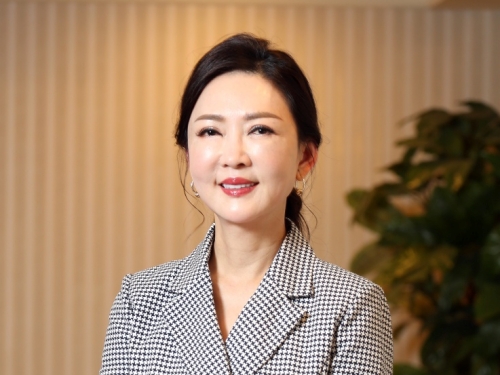 KAIST begins full-scale cooperation with Taiwan’s Formosa Group
< (From left) Senior Vice President for Planning and Budget Kyung-Soo Kim, and Professor Minee Choi of the Department of Brain and Cognitive Sciences of KAIST along with Chairman of Formosa Group Sandy Wang and KAIST President Kwang-Hyung Lee, and Dean Daesoo Kim of KAIST College of Life Science and Bioengineering >
KAIST is pursuing cooperation in the fields of advanced biotechnology and eco-friendly energy with Formosa Plastics Group, one of Taiwan's three largest companies.
To this end, Chairman Sandy Wang, a member of Formosa Group's standing committee and leader of the group's bio and eco-friendly energy sector, will visit KAIST on the 13th of this month. This is the first time that the owner of Formosa Group has made an official visit to KAIST.
Cooperation between the two institutions began last March when our university signed a memorandum of understanding on comprehensive exchange and cooperation with Ming Chi University of Science and Technology (明志科技大學), Chang Gung University(長庚大學), and Chang Gung Memorial Hospital(長庚記念醫院), three of many institutions established and supported by Formosa Group.
Based on this, Chairman Sandy Wang, who visits our university to promote more exchanges and cooperation, talked about ‘the education of children and corporate social return and practice of his father, Chairman Yung-Ching Wang,’ through a special lecture for the school leadership as a part of the Monthly Lecture on KAIST’s Leadership Innovation Day.
She then visited KAIST's research and engineering facilities related to Taiwan's future industries, such as advanced biotechnology and eco-friendly energy, and discussed global industry-academic cooperation plans. In the future, the two organizations plan to appoint adjunct professors and promote practical global cooperation, including joint student guidance and research cooperation. We plan to pursue effective mid- to long-term cooperation, such as conducting battery application research with the KAIST Next-Generation ESS Research Center and opening a graduate program specialized in stem cell and gene editing technology in connection with Chang Gung University and Chang Gung Memorial Hospital. The newly established cooperative relationship will also promote Formosa Group's investment and cooperation with KAIST's outstanding venture companies related to bio and eco-friendly energy to lay the foundation for innovative industrial cooperation between Taiwan and Korea.
President Kwang-Hyung Lee said, “The Formosa Group has a global network, so we regard it to be a key partner that will position KAIST’s bio and engineering technology in the global stages.” He also said, “With Chairman Sandy Wang’s visit, Taiwan is emerging as a global economic powerhouse,” and added, “We expect to continue our close cooperative relationship with the company.”
Formosa Group is a company founded by the late Chairman Yung-Ching Wang, the father of Chairman Sandy Wang. As the world's No. 1 plastic PVC producer, it is leading the core industries of Taiwan's economy, including semiconductors, steel, heavy industry, bio, and batteries. Chairman Yung-Ching Wang was respected by the Taiwanese people by setting an example of returning his wealth to society under the belief that the companies and assets he built ‘belonged to the people.’ Chang Gung University, Chang Gung Memorial Hospital, and Ming Chi University of Technology, which are pursuing cooperation with our university, were also established as part of the social contribution promoted by Chairman Yung-Ching Wang and are receiving financial support from Formosa Group.
2024.05.09 View 5216
KAIST begins full-scale cooperation with Taiwan’s Formosa Group
< (From left) Senior Vice President for Planning and Budget Kyung-Soo Kim, and Professor Minee Choi of the Department of Brain and Cognitive Sciences of KAIST along with Chairman of Formosa Group Sandy Wang and KAIST President Kwang-Hyung Lee, and Dean Daesoo Kim of KAIST College of Life Science and Bioengineering >
KAIST is pursuing cooperation in the fields of advanced biotechnology and eco-friendly energy with Formosa Plastics Group, one of Taiwan's three largest companies.
To this end, Chairman Sandy Wang, a member of Formosa Group's standing committee and leader of the group's bio and eco-friendly energy sector, will visit KAIST on the 13th of this month. This is the first time that the owner of Formosa Group has made an official visit to KAIST.
Cooperation between the two institutions began last March when our university signed a memorandum of understanding on comprehensive exchange and cooperation with Ming Chi University of Science and Technology (明志科技大學), Chang Gung University(長庚大學), and Chang Gung Memorial Hospital(長庚記念醫院), three of many institutions established and supported by Formosa Group.
Based on this, Chairman Sandy Wang, who visits our university to promote more exchanges and cooperation, talked about ‘the education of children and corporate social return and practice of his father, Chairman Yung-Ching Wang,’ through a special lecture for the school leadership as a part of the Monthly Lecture on KAIST’s Leadership Innovation Day.
She then visited KAIST's research and engineering facilities related to Taiwan's future industries, such as advanced biotechnology and eco-friendly energy, and discussed global industry-academic cooperation plans. In the future, the two organizations plan to appoint adjunct professors and promote practical global cooperation, including joint student guidance and research cooperation. We plan to pursue effective mid- to long-term cooperation, such as conducting battery application research with the KAIST Next-Generation ESS Research Center and opening a graduate program specialized in stem cell and gene editing technology in connection with Chang Gung University and Chang Gung Memorial Hospital. The newly established cooperative relationship will also promote Formosa Group's investment and cooperation with KAIST's outstanding venture companies related to bio and eco-friendly energy to lay the foundation for innovative industrial cooperation between Taiwan and Korea.
President Kwang-Hyung Lee said, “The Formosa Group has a global network, so we regard it to be a key partner that will position KAIST’s bio and engineering technology in the global stages.” He also said, “With Chairman Sandy Wang’s visit, Taiwan is emerging as a global economic powerhouse,” and added, “We expect to continue our close cooperative relationship with the company.”
Formosa Group is a company founded by the late Chairman Yung-Ching Wang, the father of Chairman Sandy Wang. As the world's No. 1 plastic PVC producer, it is leading the core industries of Taiwan's economy, including semiconductors, steel, heavy industry, bio, and batteries. Chairman Yung-Ching Wang was respected by the Taiwanese people by setting an example of returning his wealth to society under the belief that the companies and assets he built ‘belonged to the people.’ Chang Gung University, Chang Gung Memorial Hospital, and Ming Chi University of Technology, which are pursuing cooperation with our university, were also established as part of the social contribution promoted by Chairman Yung-Ching Wang and are receiving financial support from Formosa Group.
2024.05.09 View 5216 -
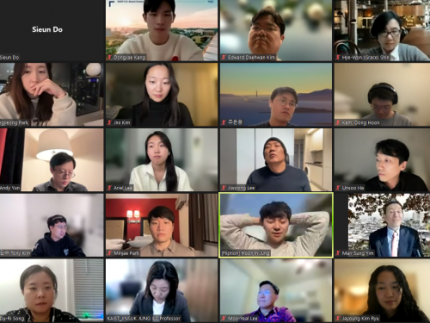 Center for Global Strategies and Planning Hosts Successful Virtual KAIST U.S. Alumni Connection Event
< Screen capture of the KAIST U.S. Alumni meeting held online on December 8 >
On December 8th, the Center for Global Strategies and Planning at KAIST, led by Vice President Man-Sung Yim of the International Office, conducted a virtual event to bring together KAIST alumni in the United States. The purpose of this event was to showcase KAIST's current initiatives in the U.S., facilitate information exchanges among U.S. alumni, and foster networking opportunities. Over 130 KAIST alumni based in the U.S. registered and attended the event.
The event began with a warm welcome from President Kwang-Hyung Lee, followed by a presentation from Vice President Man-Sung Yim on the current status and vision of KAIST's U.S. collaboration project as well as that of KAIST U.S. Foundation, Inc. Additionally, a distinguished KAIST alumnus, Seok-Hyun Yun, a professor from Harvard Medical School, delivered a keynote speech that highlighted the development of collaborative projects between KAIST and the United States. Alumni Hyun Gook Yoon, a manager at Ford Motor Company, and Eunkwang Joo, CEO of Wasder, also presented recent technological trends in the fields of batteries and blockchain, respectively.
President Kwang-Hyung Lee said, "This event serves as a crucial opportunity to enhance exchanges between KAIST and the U.S., playing a pivotal role in expanding KAIST's global presence." The event also featured small group discussions and networking sessions focusing on revitalizing collaborative efforts between KAIST and the United States.
After the small group discussions, a KAIST alumna and the current president of the Boston KAIST Alumni Association, Jiyoung Lee, shared her belief that the event will provide a meaningful opportunity for KAIST alumni from across the U.S. to come together and build a strong alumni community. Vice President Man-Sung Yim said, "Because collaboration with KAIST alumni in the U.S. is essential for the development of KAIST and innovative science and technology at the global level, we are committed to sustainably organizing meaningful events."
This virtual event for KAIST U.S. alumni has set a new milestone for global networking, marking the beginning of future collaborations and development.
2023.12.08 View 6055
Center for Global Strategies and Planning Hosts Successful Virtual KAIST U.S. Alumni Connection Event
< Screen capture of the KAIST U.S. Alumni meeting held online on December 8 >
On December 8th, the Center for Global Strategies and Planning at KAIST, led by Vice President Man-Sung Yim of the International Office, conducted a virtual event to bring together KAIST alumni in the United States. The purpose of this event was to showcase KAIST's current initiatives in the U.S., facilitate information exchanges among U.S. alumni, and foster networking opportunities. Over 130 KAIST alumni based in the U.S. registered and attended the event.
The event began with a warm welcome from President Kwang-Hyung Lee, followed by a presentation from Vice President Man-Sung Yim on the current status and vision of KAIST's U.S. collaboration project as well as that of KAIST U.S. Foundation, Inc. Additionally, a distinguished KAIST alumnus, Seok-Hyun Yun, a professor from Harvard Medical School, delivered a keynote speech that highlighted the development of collaborative projects between KAIST and the United States. Alumni Hyun Gook Yoon, a manager at Ford Motor Company, and Eunkwang Joo, CEO of Wasder, also presented recent technological trends in the fields of batteries and blockchain, respectively.
President Kwang-Hyung Lee said, "This event serves as a crucial opportunity to enhance exchanges between KAIST and the U.S., playing a pivotal role in expanding KAIST's global presence." The event also featured small group discussions and networking sessions focusing on revitalizing collaborative efforts between KAIST and the United States.
After the small group discussions, a KAIST alumna and the current president of the Boston KAIST Alumni Association, Jiyoung Lee, shared her belief that the event will provide a meaningful opportunity for KAIST alumni from across the U.S. to come together and build a strong alumni community. Vice President Man-Sung Yim said, "Because collaboration with KAIST alumni in the U.S. is essential for the development of KAIST and innovative science and technology at the global level, we are committed to sustainably organizing meaningful events."
This virtual event for KAIST U.S. alumni has set a new milestone for global networking, marking the beginning of future collaborations and development.
2023.12.08 View 6055 -
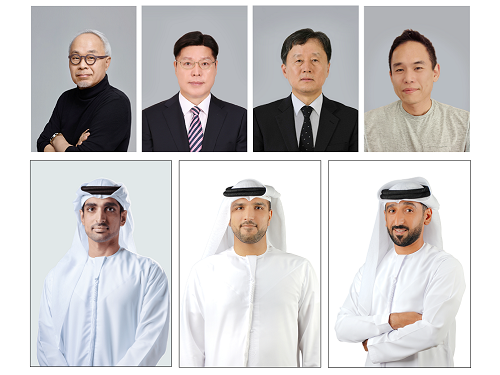 UAE Space Program Leaders named to be the 1st of the honorees of KAIST Alumni Association's special recognition for graduates of foreign nationality
The KAIST Alumni Association (Chairman, Chil-Hee Chung) announced on the 12th that the winners of the 2023 KAIST Distinguished Alumni Award and International Alumni Award has been selected.
The KAIST Distinguished Alumni Award, which produced the first recipient in 1992, is an award given to alumni who have contributed to the development of the nation and society, or who have glorified the honor of their alma mater with outstanding academic achievements and social and/or communal contributions.
On a special note, this year, there has been an addition to the honors, “the KAIST Distinguished International Alumni Award” to honor and encourage overseas alumni who are making their marks in the international community that will boost positive recognition of KAIST in the global setting and will later become a bridge that will expedite Korea's international efforts in the future.
As of 2022, the number of international students who succeeded in earning KAIST degrees has exceeded 1,700, and they are actively doing their part back in their home countries as leaders in various fields in which they belong, spanning from science and technology, to politics, industry and other corners of the society.
(From left) Omran Sharaf, the Assistant Minister of UAE Foreign Affairs and International Cooperation for Advanced Science and Technology, Amer Al Sayegh the Director General of Space Project at MBRSC, and Mohammed Al Harmi the Director General of Administration at MBRSC (Photos provided by the courtesy of MBRSC)
To celebrate and honor their outstanding achievements, the KAIST Alumni Association selected a team of three alumni of the United Arab Emirates (UAE) to receive the Distinguished International Alumni Award for the first time. The named honorees are Omran Sharaf, a master’s graduate from the Graduate School of Science and Technology Policy, and Amer Al Sayegh and Mohammed Al Harmi, master’s graduates of the Department of Aerospace Engineering - all three of the class of 2013 in leading positions in the UAE space program to lead the advancement of the science and technology of the country.
Currently, the three alums are in directorship of the Mohammed Bin Rashid Space Centre (MBRSC) with Mr. Omran Sharaf, who has recently been appointed as the Assistant Minister in charge of Advanced Science and Technology at the UAE Ministry of Foreign Affairs and International Cooperation, being the Project Director of the Emirates Mars Mission of MBRSC and Mr. Amer Al Sayegh in the Director General position in charge of Space Project and Mr. Mohammed Al Harmi, the Director General of Administration, at MBRSC.
They received technology transfer from “SatRec I”, Korea's first satellite system exporter and KAIST alumni company, for about 10 years from 2006, while carrying out their master’s studies at the same time.
Afterwards, they returned to UAE to lead the Emirates Mars Mission, which is already showing tangible progress including the successful launch of the Mars probe "Amal" (ال امل, meaning ‘Hope’ in Arabic), which was the first in the Arab world and the fifth in the world to successfully enter into orbit around Mars, and the UAE’s first independently developed Earth observation satellite "KhalifaSat".
An official from the KAIST Alumni Association said, "We selected the Distinguished International Alumni after evaluating their industrious leadership in promoting various space industry strategies, ranging from the development of Mars probes and Earth observation satellites, as well as lunar exploration, asteroid exploration, and Mars residence plans."
(From left) Joo-Sun Choi, President & CEO of Samsung Display Co. Ltd., Jung Goo Cho, the CEO of Green Power Co. Ltd., Jong Seung Park, the President of Agency for Defense Development (ADD), Kyunghyun Cho, Professor of New York University (NYU)
Also, four of the Korean graduates, Joo-Sun Choi, the CEO of Samsung Display, Jung Goo Cho, the CEO of Green Power Co. Ltd., Jong Seung Park, the President of Agency for Defense Development (ADD), and Kyunghyun Cho, a Professor of New York University (NYU), were selected as the winners of the “Distinguished Alumni Award”.
Mr. Joo-Sun Choi (Electrical and Electronic Engineering, M.S. in 1989, Ph.D. in 1995), the CEO of Samsung Display, led the successful development and mass-production of the world's first ultra-high-definition QD-OLED Displays, and preemptively transformed the structure of business of the industry and has been leading the way in technological innovation.
Mr. Jung Goo Cho (Electrical and Electronic Engineering, M.S. in 1988, Ph.D. in 1992), the CEO of Green Power Co. Ltd., developed wireless power technology for the first time in Korea in the early 2000s and applied it to semiconductor/display lines and led the wireless power charging technology in various fields, such as developing KAIST On-Line Electric Vehicles (OLEV) and commercializing the world's first wireless charger for 11kW electric vehicles.
Mr. Jong Seung Park (Mechanical Engineering, M.S. in 1988, Ph.D., in 1991), The President of ADD is an expert with abundant science and technology knowledge and organizational management capabilities. He is contributing greatly to national defense and security through science and technology.
Mr. Kyunghyun Cho (Computer Science, B.S., in 2009), the Professor of Computer Science and Data Science at NYU, is a world-renowned expert in Artificial Intelligence (AI), advancing the concept of 'Neural Machine Translation' in the field of natural language processing, to make great contributions to AI translation technology and related industries.
Chairman Chil-Hee Chung, the 26th Chair of KAIST Alumni Association “As each year goes by, I feel that the influence of KAIST alumni goes beyond science and technology to affect our society as a whole.” He went on to say, “This year, as it was more meaningful to extend the award to honor the international members of our Alums, we look forward to seeing more of our alumni continuing their social and academic endeavors to play an active role in the global stage in taking on the global challenges.”
The Ceremony for KAIST Distinguished Alumni and International Alumni Award Honorees will be conducted at the Annual New Year’s Event of KAIST Alumni Association for 2023 to be held on Friday, January 13th, at the Grand InterContinental Seoul Parnas.
2023.01.12 View 15019
UAE Space Program Leaders named to be the 1st of the honorees of KAIST Alumni Association's special recognition for graduates of foreign nationality
The KAIST Alumni Association (Chairman, Chil-Hee Chung) announced on the 12th that the winners of the 2023 KAIST Distinguished Alumni Award and International Alumni Award has been selected.
The KAIST Distinguished Alumni Award, which produced the first recipient in 1992, is an award given to alumni who have contributed to the development of the nation and society, or who have glorified the honor of their alma mater with outstanding academic achievements and social and/or communal contributions.
On a special note, this year, there has been an addition to the honors, “the KAIST Distinguished International Alumni Award” to honor and encourage overseas alumni who are making their marks in the international community that will boost positive recognition of KAIST in the global setting and will later become a bridge that will expedite Korea's international efforts in the future.
As of 2022, the number of international students who succeeded in earning KAIST degrees has exceeded 1,700, and they are actively doing their part back in their home countries as leaders in various fields in which they belong, spanning from science and technology, to politics, industry and other corners of the society.
(From left) Omran Sharaf, the Assistant Minister of UAE Foreign Affairs and International Cooperation for Advanced Science and Technology, Amer Al Sayegh the Director General of Space Project at MBRSC, and Mohammed Al Harmi the Director General of Administration at MBRSC (Photos provided by the courtesy of MBRSC)
To celebrate and honor their outstanding achievements, the KAIST Alumni Association selected a team of three alumni of the United Arab Emirates (UAE) to receive the Distinguished International Alumni Award for the first time. The named honorees are Omran Sharaf, a master’s graduate from the Graduate School of Science and Technology Policy, and Amer Al Sayegh and Mohammed Al Harmi, master’s graduates of the Department of Aerospace Engineering - all three of the class of 2013 in leading positions in the UAE space program to lead the advancement of the science and technology of the country.
Currently, the three alums are in directorship of the Mohammed Bin Rashid Space Centre (MBRSC) with Mr. Omran Sharaf, who has recently been appointed as the Assistant Minister in charge of Advanced Science and Technology at the UAE Ministry of Foreign Affairs and International Cooperation, being the Project Director of the Emirates Mars Mission of MBRSC and Mr. Amer Al Sayegh in the Director General position in charge of Space Project and Mr. Mohammed Al Harmi, the Director General of Administration, at MBRSC.
They received technology transfer from “SatRec I”, Korea's first satellite system exporter and KAIST alumni company, for about 10 years from 2006, while carrying out their master’s studies at the same time.
Afterwards, they returned to UAE to lead the Emirates Mars Mission, which is already showing tangible progress including the successful launch of the Mars probe "Amal" (ال امل, meaning ‘Hope’ in Arabic), which was the first in the Arab world and the fifth in the world to successfully enter into orbit around Mars, and the UAE’s first independently developed Earth observation satellite "KhalifaSat".
An official from the KAIST Alumni Association said, "We selected the Distinguished International Alumni after evaluating their industrious leadership in promoting various space industry strategies, ranging from the development of Mars probes and Earth observation satellites, as well as lunar exploration, asteroid exploration, and Mars residence plans."
(From left) Joo-Sun Choi, President & CEO of Samsung Display Co. Ltd., Jung Goo Cho, the CEO of Green Power Co. Ltd., Jong Seung Park, the President of Agency for Defense Development (ADD), Kyunghyun Cho, Professor of New York University (NYU)
Also, four of the Korean graduates, Joo-Sun Choi, the CEO of Samsung Display, Jung Goo Cho, the CEO of Green Power Co. Ltd., Jong Seung Park, the President of Agency for Defense Development (ADD), and Kyunghyun Cho, a Professor of New York University (NYU), were selected as the winners of the “Distinguished Alumni Award”.
Mr. Joo-Sun Choi (Electrical and Electronic Engineering, M.S. in 1989, Ph.D. in 1995), the CEO of Samsung Display, led the successful development and mass-production of the world's first ultra-high-definition QD-OLED Displays, and preemptively transformed the structure of business of the industry and has been leading the way in technological innovation.
Mr. Jung Goo Cho (Electrical and Electronic Engineering, M.S. in 1988, Ph.D. in 1992), the CEO of Green Power Co. Ltd., developed wireless power technology for the first time in Korea in the early 2000s and applied it to semiconductor/display lines and led the wireless power charging technology in various fields, such as developing KAIST On-Line Electric Vehicles (OLEV) and commercializing the world's first wireless charger for 11kW electric vehicles.
Mr. Jong Seung Park (Mechanical Engineering, M.S. in 1988, Ph.D., in 1991), The President of ADD is an expert with abundant science and technology knowledge and organizational management capabilities. He is contributing greatly to national defense and security through science and technology.
Mr. Kyunghyun Cho (Computer Science, B.S., in 2009), the Professor of Computer Science and Data Science at NYU, is a world-renowned expert in Artificial Intelligence (AI), advancing the concept of 'Neural Machine Translation' in the field of natural language processing, to make great contributions to AI translation technology and related industries.
Chairman Chil-Hee Chung, the 26th Chair of KAIST Alumni Association “As each year goes by, I feel that the influence of KAIST alumni goes beyond science and technology to affect our society as a whole.” He went on to say, “This year, as it was more meaningful to extend the award to honor the international members of our Alums, we look forward to seeing more of our alumni continuing their social and academic endeavors to play an active role in the global stage in taking on the global challenges.”
The Ceremony for KAIST Distinguished Alumni and International Alumni Award Honorees will be conducted at the Annual New Year’s Event of KAIST Alumni Association for 2023 to be held on Friday, January 13th, at the Grand InterContinental Seoul Parnas.
2023.01.12 View 15019 -
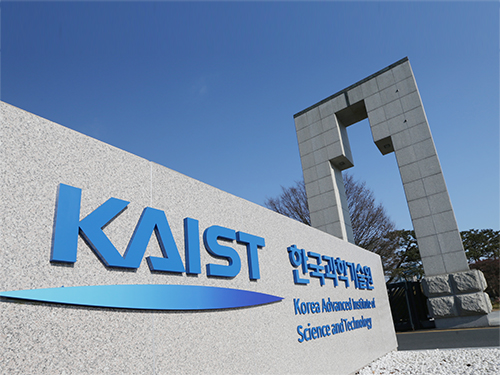 KAIST Awarded the IPBC R&D Institution Team of the Year
KAIST was awarded the R&D Institution Team of the Year during the annual IPBC (Intellectual Property Business Congress) Asia 2019 held in Tokyo October 28-30. IPBC is a conference dedicated to IP value creation strategies hosted by IAM Media, a world’s leading IP business media platform.
IPBC Asia 2019 recognized the institutions and businesses that employed innovative IP strategies and management to produce the greatest IP value in 11 categories covering automotive, electronics, healthcare and biotechnology, internet and software, R&D institutions, semiconductors, industrials, mobile and telecommunications, Asia IP deals, Asia teams, and Asia individuals. This year, KAIST was recognized as one of the most active patentees in the Asia-Pacific region by significantly increasing its IP value through licensing and tech transfers.
Associate Vice President Kyung Cheol Choi of the Office of University-Industry Cooperation remarked, “We are so delighted to prove the strong research capacity of KAIST. This will help us accomplish our vision of being a leading university that creates global impact.”
2019.12.04 View 8459
KAIST Awarded the IPBC R&D Institution Team of the Year
KAIST was awarded the R&D Institution Team of the Year during the annual IPBC (Intellectual Property Business Congress) Asia 2019 held in Tokyo October 28-30. IPBC is a conference dedicated to IP value creation strategies hosted by IAM Media, a world’s leading IP business media platform.
IPBC Asia 2019 recognized the institutions and businesses that employed innovative IP strategies and management to produce the greatest IP value in 11 categories covering automotive, electronics, healthcare and biotechnology, internet and software, R&D institutions, semiconductors, industrials, mobile and telecommunications, Asia IP deals, Asia teams, and Asia individuals. This year, KAIST was recognized as one of the most active patentees in the Asia-Pacific region by significantly increasing its IP value through licensing and tech transfers.
Associate Vice President Kyung Cheol Choi of the Office of University-Industry Cooperation remarked, “We are so delighted to prove the strong research capacity of KAIST. This will help us accomplish our vision of being a leading university that creates global impact.”
2019.12.04 View 8459 -
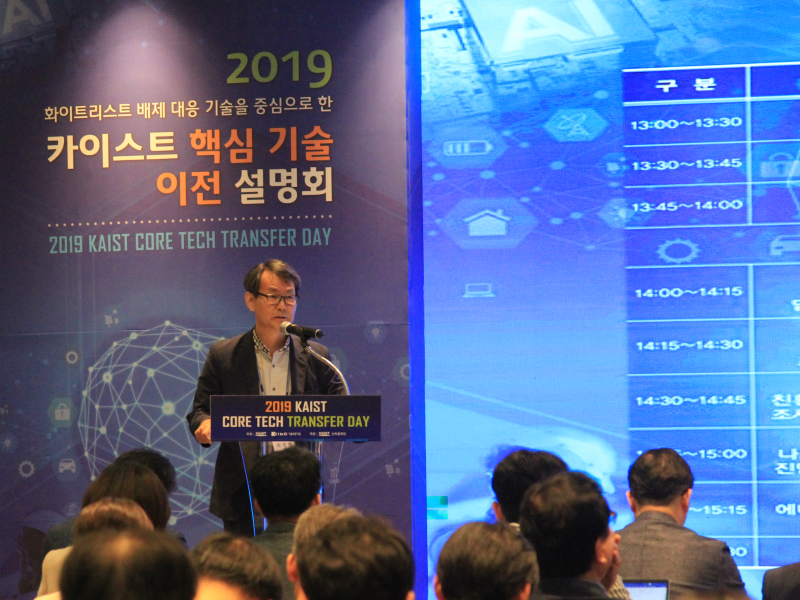 KAIST to Transfer Core Tech to Domestic Companies amid Japan's Export Curbs
< Associate Vice President Kyung-Cheol Choi of the Office of University-Industry Cooperation (OUIC) at KAIST >
KAIST will transfer four core technologies related to materials, parts, and equipment to domestic companies to help them combat the latest export curbs triggered by Korea’s removal from Japan’s ‘white list’ of preferential trade partners. In addition, KAIST’s five patented technologies in the field of artificial intelligence (AI) and materials and parts will also be transferred to the companies in order to reduce the reliance on Japan and achieve technological independence through the ‘localization’ of key technologies.
KAIST announced these university-industry cooperation promotion plans at the ‘2019 KAIST Core Tech Transfer Day Conference’ held in Seoul on September 17. More than 200 entrepreneurs and investors attended the briefing and on-site consulting sessions delivered by nine KAIST professors who led the development of the technologies.
The four technologies were presented at the conference as those that can replace Japanese technologies subject to the export curbs. They include:
1. ‘Transparent fluorinated polyimide with low thermal expansion’ developed by Professor Sang-Youl Kim of the Department of Chemistry
2. ‘A non-destructive electromagnetic performance testing system’ developed by Professor Jung-Ryul Lee of the Department of Aerospace Engineering
3. ‘A nanotechnology-based electrode material for use in advanced secondary batteries’ developed by Professor Do-Kyung Kim of the Department of Materials Science and Engineering
4. ‘A high-resolution photoresist’ developed by Professor Emeritus Jin-Baek Kim of the Department of Chemistry.
Of particular interest is the non-destructive electromagnetic performance testing system technology developed by Professor Jung-Ryul Lee. This new cost-effective technology enables tests that were impossible to carry out using conventional technologies and yields a cost reduction of more than 50 percent compared to foreign technologies.
By introducing Professor Do-Kyung Kim’s new electrode material technology, the efficiency of electric vehicles can be increased. As this technology uses relatively low-cost sodium ion batteries, industries can prepare for the possible jump from the more expensive lithium batteries currently being used.
Another five patented AI and materials and parts technologies disclosed at the conference include:
1. ‘Enhanced HTTP adaptive streaming with CNN-based super-resolution’ developed by Professor Dong-soo Han of the School of Electrical Engineering
2. ‘Method and apparatus of brain-computer interface design for estimating choice behavior and decision strategy’ developed by Professor Sang-Wan Lee of the Department of Bio and Brain Engineering
3. ‘Eco-friendly fabrication of metal oxide nanoparticles and fabrication of non-toxic polymer sunscreen ingredients by electron irradiation’ developed by Professor Sung-Oh Cho of the Department of Nuclear and Quantum Engineering
4. ‘High-density nanofiber yarn-based coloricmetric gas sensors’ developed by Professor Il-Doo Kim of the Department of Materials Science and Engineering
5. ‘Silicon-pocket energy storage electrode with high energy density and its manufacturing technology’ developed by Professor Jeung-Ku Kang of the Graduate school of EEWS.
The patented nanofiber-based coloricmetric gas sensor technology developed by Professor Il-Doo Kim allows for the diagnosis of diseases by only using the patient’s respiration. Due to its high productivity and processability, it is expected to be applied to various fields in the fast-growing disease diagnosis sensor market, which includes mobile devices and wearable sensors.
Moreover, Professor Dong-soo Han’s patented adaptive streaming technology attracted attention along with the ever-growing Over The Top (OTT) and Video On Demand (VOD) service markets, since it has significant potential for improving the streaming quality of videos and reducing costs for video providers.
Professor Kyung-Cheol Choi, the Associate Vice President of the Office of University-Industry Cooperation (OUIC) at KAIST, said, “KAIST OUIC and KAIST Advisors on Materials and Parts (KAMP) have been working tirelessly to help Korean companies cope with the recent Japanese export restrictions. KAIST’s efforts will enhance the competitiveness and growth of the Korean industry and economy, turning this national crisis into opportunity.”
(END)
2019.09.20 View 7463
KAIST to Transfer Core Tech to Domestic Companies amid Japan's Export Curbs
< Associate Vice President Kyung-Cheol Choi of the Office of University-Industry Cooperation (OUIC) at KAIST >
KAIST will transfer four core technologies related to materials, parts, and equipment to domestic companies to help them combat the latest export curbs triggered by Korea’s removal from Japan’s ‘white list’ of preferential trade partners. In addition, KAIST’s five patented technologies in the field of artificial intelligence (AI) and materials and parts will also be transferred to the companies in order to reduce the reliance on Japan and achieve technological independence through the ‘localization’ of key technologies.
KAIST announced these university-industry cooperation promotion plans at the ‘2019 KAIST Core Tech Transfer Day Conference’ held in Seoul on September 17. More than 200 entrepreneurs and investors attended the briefing and on-site consulting sessions delivered by nine KAIST professors who led the development of the technologies.
The four technologies were presented at the conference as those that can replace Japanese technologies subject to the export curbs. They include:
1. ‘Transparent fluorinated polyimide with low thermal expansion’ developed by Professor Sang-Youl Kim of the Department of Chemistry
2. ‘A non-destructive electromagnetic performance testing system’ developed by Professor Jung-Ryul Lee of the Department of Aerospace Engineering
3. ‘A nanotechnology-based electrode material for use in advanced secondary batteries’ developed by Professor Do-Kyung Kim of the Department of Materials Science and Engineering
4. ‘A high-resolution photoresist’ developed by Professor Emeritus Jin-Baek Kim of the Department of Chemistry.
Of particular interest is the non-destructive electromagnetic performance testing system technology developed by Professor Jung-Ryul Lee. This new cost-effective technology enables tests that were impossible to carry out using conventional technologies and yields a cost reduction of more than 50 percent compared to foreign technologies.
By introducing Professor Do-Kyung Kim’s new electrode material technology, the efficiency of electric vehicles can be increased. As this technology uses relatively low-cost sodium ion batteries, industries can prepare for the possible jump from the more expensive lithium batteries currently being used.
Another five patented AI and materials and parts technologies disclosed at the conference include:
1. ‘Enhanced HTTP adaptive streaming with CNN-based super-resolution’ developed by Professor Dong-soo Han of the School of Electrical Engineering
2. ‘Method and apparatus of brain-computer interface design for estimating choice behavior and decision strategy’ developed by Professor Sang-Wan Lee of the Department of Bio and Brain Engineering
3. ‘Eco-friendly fabrication of metal oxide nanoparticles and fabrication of non-toxic polymer sunscreen ingredients by electron irradiation’ developed by Professor Sung-Oh Cho of the Department of Nuclear and Quantum Engineering
4. ‘High-density nanofiber yarn-based coloricmetric gas sensors’ developed by Professor Il-Doo Kim of the Department of Materials Science and Engineering
5. ‘Silicon-pocket energy storage electrode with high energy density and its manufacturing technology’ developed by Professor Jeung-Ku Kang of the Graduate school of EEWS.
The patented nanofiber-based coloricmetric gas sensor technology developed by Professor Il-Doo Kim allows for the diagnosis of diseases by only using the patient’s respiration. Due to its high productivity and processability, it is expected to be applied to various fields in the fast-growing disease diagnosis sensor market, which includes mobile devices and wearable sensors.
Moreover, Professor Dong-soo Han’s patented adaptive streaming technology attracted attention along with the ever-growing Over The Top (OTT) and Video On Demand (VOD) service markets, since it has significant potential for improving the streaming quality of videos and reducing costs for video providers.
Professor Kyung-Cheol Choi, the Associate Vice President of the Office of University-Industry Cooperation (OUIC) at KAIST, said, “KAIST OUIC and KAIST Advisors on Materials and Parts (KAMP) have been working tirelessly to help Korean companies cope with the recent Japanese export restrictions. KAIST’s efforts will enhance the competitiveness and growth of the Korean industry and economy, turning this national crisis into opportunity.”
(END)
2019.09.20 View 7463 -
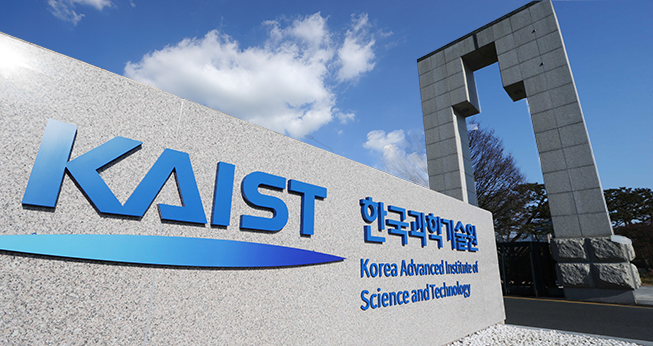 KAIST Seals the Deal for Kenya KAIST Project
KAIST will participate in Kenya’s strategic economic development plan under the provision of a turnkey-based science and technology education consultancy for the establishment of the Kenya Advanced Institute of Science and Technology (Kenya KAIST).KAIST signed the contract on November 30 with the Konza Technopolis Development Authority to establish Kenya KAIST. Korea Eximbank will offer a 95 million USD loan to the Kenyan government for this project. The project will include the educational and architectural design and construction of Kenya KAIST. The campus will be constructed in the Konza Techno City nearby Nairobi by 2021, with the first batch of 200 graduate students starting classes in 2022. KAIST, in consortium with Samwoo and Sunjin architecture and engineering companies, will take the lead of the three-year project, with the kick-off ceremony planned at the end of next January in Nairobi. The Kenyan government plans to transform Kenya into a middle-income country under Vision 2030 through promoting science, technology, and innovation for national economic growth. Nicknamed Africa’s Silicon Savannah, Konza Techno City is a strategic science and technology hub to realize this vision. To this end, the medium-term plan set a goal to provide specialized research and training in various leading-edge engineering and advanced science fields.In the two-phase evaluation of the consultancy bidding, KAIST won preferred bidder status in the technical proposal evaluation, outbidding three other Korean consortia. Invited to the financial proposal bidding, the KAIST consortium successfully completed month-long contract negotiations with Kenya last week.KAIST will develop academic curricula for six initial departments (Mechanical Engineering, Electrical/Electronic Engineering, ICT Engineering, Chemical Engineering, Civil Engineering, and Agricultural Biotechnology), which will lay the ground work for engineering research and education in Kenya to meet emerging socioeconomic demands. In addition, KAIST will provide the education of basic sciences of math, physics, chemistry, and biology for students.It is also notable that the Kenyan government asked to develop an industry-academy cooperation program in Konza Techno City. It reflects the growing industrial needs of Kenya KAIST, which will be located in the center of the Konza Technopolis. It is anticipated that the technopolis will create 16,675 jobs in the medium term and over 200,000 after completion, positioning Kenya as an ICT hub within the region.KAIST also shares a similar history of establishment with Kenya KAIST, as it will be built with a foreign loan. KAIST, created by the Korean government in 1971 to drive the economic engine through advancement of science and technology with a six-million USD loan from USAID, has now become a donor institution that hands down science and technology education systems including the construction of campuses to underdeveloped countries.The successful case of KAIST has been benchmarked by many countries for years. For instance, KAIST set up the curriculum of the nuclear engineering program at the Khalifa University of Science and Technology in UAE in 2010. In China, Chongqing University of Technology is running its electrical engineering and computer science programs based on the educational systems and curricula offered by KAIST from 2015. In October, KAIST also signed an MOU with the Prince Mohammad Bin Salman College of Cyber Security, AI, and Advanced Technologies in Saudi Arabia to provide the undergraduate program for robotics.Among all these programs benchmarking KAIST, Kenya KAIST clearly stands out, for it is carrying out a turnkey-based project that encompasses every aspect of institution building ranging from educational curriculum development to campus construction and supervision.President Sung-Chul Shin is extremely excited about finalizing the deal, remarking, “It is of great significance that KAIST’s successful development model has carved out a unique path to becoming a global leading university that will benefit other countries. In only a half century, we have transitioned from a receiver to a donor institution, as the country itself has done.”“KAIST will spare no effort for Kenya KAIST to become a successful science and technology university that will play a crucial role in Kenya’s national development. I believe Kenya KAIST will be an exemplary case of an ODA (Official Development Assistance) project based on the development of science and technology to benefit underdeveloped countries,” he added.
2018.12.03 View 10573
KAIST Seals the Deal for Kenya KAIST Project
KAIST will participate in Kenya’s strategic economic development plan under the provision of a turnkey-based science and technology education consultancy for the establishment of the Kenya Advanced Institute of Science and Technology (Kenya KAIST).KAIST signed the contract on November 30 with the Konza Technopolis Development Authority to establish Kenya KAIST. Korea Eximbank will offer a 95 million USD loan to the Kenyan government for this project. The project will include the educational and architectural design and construction of Kenya KAIST. The campus will be constructed in the Konza Techno City nearby Nairobi by 2021, with the first batch of 200 graduate students starting classes in 2022. KAIST, in consortium with Samwoo and Sunjin architecture and engineering companies, will take the lead of the three-year project, with the kick-off ceremony planned at the end of next January in Nairobi. The Kenyan government plans to transform Kenya into a middle-income country under Vision 2030 through promoting science, technology, and innovation for national economic growth. Nicknamed Africa’s Silicon Savannah, Konza Techno City is a strategic science and technology hub to realize this vision. To this end, the medium-term plan set a goal to provide specialized research and training in various leading-edge engineering and advanced science fields.In the two-phase evaluation of the consultancy bidding, KAIST won preferred bidder status in the technical proposal evaluation, outbidding three other Korean consortia. Invited to the financial proposal bidding, the KAIST consortium successfully completed month-long contract negotiations with Kenya last week.KAIST will develop academic curricula for six initial departments (Mechanical Engineering, Electrical/Electronic Engineering, ICT Engineering, Chemical Engineering, Civil Engineering, and Agricultural Biotechnology), which will lay the ground work for engineering research and education in Kenya to meet emerging socioeconomic demands. In addition, KAIST will provide the education of basic sciences of math, physics, chemistry, and biology for students.It is also notable that the Kenyan government asked to develop an industry-academy cooperation program in Konza Techno City. It reflects the growing industrial needs of Kenya KAIST, which will be located in the center of the Konza Technopolis. It is anticipated that the technopolis will create 16,675 jobs in the medium term and over 200,000 after completion, positioning Kenya as an ICT hub within the region.KAIST also shares a similar history of establishment with Kenya KAIST, as it will be built with a foreign loan. KAIST, created by the Korean government in 1971 to drive the economic engine through advancement of science and technology with a six-million USD loan from USAID, has now become a donor institution that hands down science and technology education systems including the construction of campuses to underdeveloped countries.The successful case of KAIST has been benchmarked by many countries for years. For instance, KAIST set up the curriculum of the nuclear engineering program at the Khalifa University of Science and Technology in UAE in 2010. In China, Chongqing University of Technology is running its electrical engineering and computer science programs based on the educational systems and curricula offered by KAIST from 2015. In October, KAIST also signed an MOU with the Prince Mohammad Bin Salman College of Cyber Security, AI, and Advanced Technologies in Saudi Arabia to provide the undergraduate program for robotics.Among all these programs benchmarking KAIST, Kenya KAIST clearly stands out, for it is carrying out a turnkey-based project that encompasses every aspect of institution building ranging from educational curriculum development to campus construction and supervision.President Sung-Chul Shin is extremely excited about finalizing the deal, remarking, “It is of great significance that KAIST’s successful development model has carved out a unique path to becoming a global leading university that will benefit other countries. In only a half century, we have transitioned from a receiver to a donor institution, as the country itself has done.”“KAIST will spare no effort for Kenya KAIST to become a successful science and technology university that will play a crucial role in Kenya’s national development. I believe Kenya KAIST will be an exemplary case of an ODA (Official Development Assistance) project based on the development of science and technology to benefit underdeveloped countries,” he added.
2018.12.03 View 10573 -
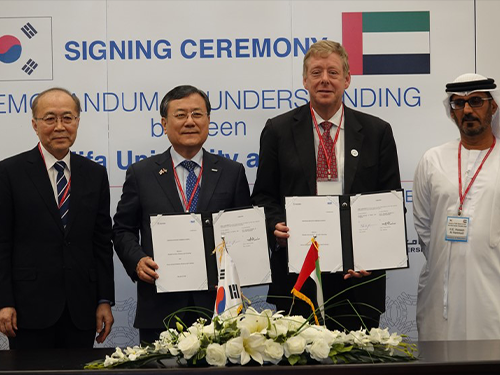 KAIST-KU Sign MOU on 4th Industrial Technology Development
(President Shin(second from left) poses with Khalifa University President Tod Laursen after signing an MOU in the UAE on March 25. Far left is Chairman of the NST Kwangyun Wohn and far right is the UAE Minister of Educatiion Hussain Al Hammadi.)
KAIST President Sung-Chul Shin and Khalifa University Interim President Tod Laursen signed an MOU on the Fourth Industrial Technology Development on March 25 in the UAE.
They signed the MOU during the UAE-ROK Nuclear Friendship and KAIST Alumni Night at Khalifa University co-hosted by KAIST and the Korea Atomic Energy Research Institute (KAERI). The MOU will bring new opportunities to further expand bilateral cooperation in education and training in the relevant technologies called for the era of the Fourth Industrial Revolution.
More than 100 dignitaries including Chairman of National Research Council of Science and Technology (NST) in Korea Dr. Kwangyun Wohn, President of KAERI Jaejoo Ha, the UAE Minister of Education His Excellency Hussain Al Hammadi, Minister of State for Advanced Sciences Her Excellency Sarah bint Yousef Al Amiri, and His Excellency Federal Authority for Nuclear Regulation (FANR) Director General Christopher Viktorsson attended the event. In particular, a significant number of Emirati graduates of the KUSTAR-KAIST education program and many others who completed various KAIST training programs joined the event.
The Nuclear Friendship Night was celebrating the completion of the first nuclear power plant in Barakah exported by Korea. This is the first nuclear reactor in the Middle East, which is to start operation later this year. The event also coincided with Korean President Moon Jae-In’s state visit to the UAE.
KAIST and KAERI gathered distinguished leaders from the higher education and nuclear industries at the event in response to the UAE government’s top national agenda of fostering future talents and promoting the nuclear industry in order to ensure energy security.
KAIST and Khalifa University signed an initial agreement in education and research in 2009 when the governments of Korea and the UAE signed a contract to build four nuclear power plants in Barakah. Since then, the two universities have worked together closely in the areas of nuclear engineering, bio-medical engineering, robotics, mechanical engineering, chemical engineering, and materials science. With this signing on the new MOU, the partnership between the two institutions will mark the second phase of educating high-caliber human resources in science and technology of the two countries.
The KAIST Alumni Night also brought more opportunities to appreciate the achievements that the two countries have made through collaboration in education and research, mostly represented in the field of nuclear technology between KAIST and Khalifa University. During the event, KAIST graduates also shared their experiences from the education at KAIST, followed by the welcoming speeches from the UAE Minister of Education and the UAE Minister of State for Advanced Sciences.
KAIST President Shin, in his welcoming speech at the event, said, “I look forward to more students in the UAE having the opportunity to experience the world’s top-level education and global environment that KAIST offers. The collaboration with Khalifa University and the UAE is very important for building both countries’ future growth.”
KU President Laursen said, “This MOU on research cooperation focusing on technologies for the Fourth Industrial Revolution, nuclear engineering, and other technical areas will further consolidate our partnership with KAIST and support us in developing human capital suitable to take on future challenges in the science and technology sectors. We firmly believe the talent pool of experts created by this initiative will contribute to the overall economic growth of the UAE.”
2018.03.26 View 10687
KAIST-KU Sign MOU on 4th Industrial Technology Development
(President Shin(second from left) poses with Khalifa University President Tod Laursen after signing an MOU in the UAE on March 25. Far left is Chairman of the NST Kwangyun Wohn and far right is the UAE Minister of Educatiion Hussain Al Hammadi.)
KAIST President Sung-Chul Shin and Khalifa University Interim President Tod Laursen signed an MOU on the Fourth Industrial Technology Development on March 25 in the UAE.
They signed the MOU during the UAE-ROK Nuclear Friendship and KAIST Alumni Night at Khalifa University co-hosted by KAIST and the Korea Atomic Energy Research Institute (KAERI). The MOU will bring new opportunities to further expand bilateral cooperation in education and training in the relevant technologies called for the era of the Fourth Industrial Revolution.
More than 100 dignitaries including Chairman of National Research Council of Science and Technology (NST) in Korea Dr. Kwangyun Wohn, President of KAERI Jaejoo Ha, the UAE Minister of Education His Excellency Hussain Al Hammadi, Minister of State for Advanced Sciences Her Excellency Sarah bint Yousef Al Amiri, and His Excellency Federal Authority for Nuclear Regulation (FANR) Director General Christopher Viktorsson attended the event. In particular, a significant number of Emirati graduates of the KUSTAR-KAIST education program and many others who completed various KAIST training programs joined the event.
The Nuclear Friendship Night was celebrating the completion of the first nuclear power plant in Barakah exported by Korea. This is the first nuclear reactor in the Middle East, which is to start operation later this year. The event also coincided with Korean President Moon Jae-In’s state visit to the UAE.
KAIST and KAERI gathered distinguished leaders from the higher education and nuclear industries at the event in response to the UAE government’s top national agenda of fostering future talents and promoting the nuclear industry in order to ensure energy security.
KAIST and Khalifa University signed an initial agreement in education and research in 2009 when the governments of Korea and the UAE signed a contract to build four nuclear power plants in Barakah. Since then, the two universities have worked together closely in the areas of nuclear engineering, bio-medical engineering, robotics, mechanical engineering, chemical engineering, and materials science. With this signing on the new MOU, the partnership between the two institutions will mark the second phase of educating high-caliber human resources in science and technology of the two countries.
The KAIST Alumni Night also brought more opportunities to appreciate the achievements that the two countries have made through collaboration in education and research, mostly represented in the field of nuclear technology between KAIST and Khalifa University. During the event, KAIST graduates also shared their experiences from the education at KAIST, followed by the welcoming speeches from the UAE Minister of Education and the UAE Minister of State for Advanced Sciences.
KAIST President Shin, in his welcoming speech at the event, said, “I look forward to more students in the UAE having the opportunity to experience the world’s top-level education and global environment that KAIST offers. The collaboration with Khalifa University and the UAE is very important for building both countries’ future growth.”
KU President Laursen said, “This MOU on research cooperation focusing on technologies for the Fourth Industrial Revolution, nuclear engineering, and other technical areas will further consolidate our partnership with KAIST and support us in developing human capital suitable to take on future challenges in the science and technology sectors. We firmly believe the talent pool of experts created by this initiative will contribute to the overall economic growth of the UAE.”
2018.03.26 View 10687 -
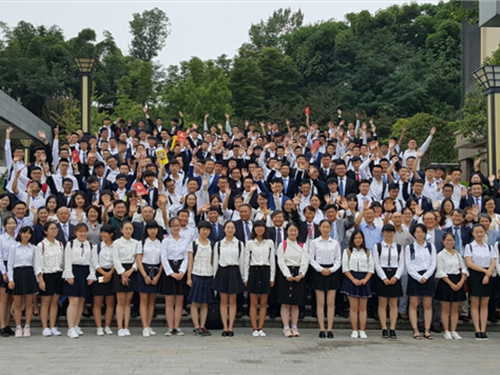 CLKIP Bearing Fruit in China
The Chongqing Liangjiang KAIST International Program (CLKIP) is rapidly gaining steam in China. CLKIP, an educational program operated in Chongqing internationally by KAIST since 2015, offers two majors, Electronic Information Engineering and Computer Science and Technology, applying the same curriculum as at KAIST.
To operate the program, KAIST assigns professors from the School of Electrical Engineering and the School of Computing to the program every year. They are in charge of one-third of the major courses, and transfer KAIST’s educational curriculum and know-how.
A total of 13 professors from Chongqing University of Technology (CQUT) have received or are receiving training on advanced education methodologies and technical know-how, including an on and offline integrated learning program, called Education 4.0 and large-scale internet open learning.As CLKIP is gaining in popularity, the number of students for its undergraduate courses keeps increasing, from 66 in 2015 to 172 in 2016 and 200 students in 2017, achieving the student volume for enrollment annually.
CLKIP selected seven exchange undergraduate students and five dual-degree students this fall, and they are currently studying in KAIST for either one semester or one full year.
CLKIP is located in Chongqing, one of the major direct-controlled municipalities and a focal point for notable government projects. The Korea-China industrial zone is also located in this area.
Considering its location, CLKIP is more than just an international programs for educational cooperation. The program will provide opportunities to cooperate with Korean enterprises including Hyundai, SK Hynix, LG Chem and Hankook Tire. While cooperating in research and development as well as technical assistance, KAIST hopes that these enterprises will play a bridging role for KAIST alumni entering the Chinese market.
President Sung-Chul Shin said, “The success of CLKIP shows that KAIST programs for fostering future manpower and developing cutting-edge technologies do work in other countries. Based on this case, KAST will put more effort into transferring our innovative education systems abroad. We are also pushing ahead to establish a joint institute between KAIST and CQUT by 2018, which will become a foundation for facilitating the entry of KAIST’s cutting-edge technologies into the Chinese market.”
“KAIST aims to become an entrepreneurial university that creates value through technology commercialization. In this sense, KAIST plans to transfer advanced technologies to domestic and international companies located in the Liangjiang district,” he added.
2017.12.12 View 11844
CLKIP Bearing Fruit in China
The Chongqing Liangjiang KAIST International Program (CLKIP) is rapidly gaining steam in China. CLKIP, an educational program operated in Chongqing internationally by KAIST since 2015, offers two majors, Electronic Information Engineering and Computer Science and Technology, applying the same curriculum as at KAIST.
To operate the program, KAIST assigns professors from the School of Electrical Engineering and the School of Computing to the program every year. They are in charge of one-third of the major courses, and transfer KAIST’s educational curriculum and know-how.
A total of 13 professors from Chongqing University of Technology (CQUT) have received or are receiving training on advanced education methodologies and technical know-how, including an on and offline integrated learning program, called Education 4.0 and large-scale internet open learning.As CLKIP is gaining in popularity, the number of students for its undergraduate courses keeps increasing, from 66 in 2015 to 172 in 2016 and 200 students in 2017, achieving the student volume for enrollment annually.
CLKIP selected seven exchange undergraduate students and five dual-degree students this fall, and they are currently studying in KAIST for either one semester or one full year.
CLKIP is located in Chongqing, one of the major direct-controlled municipalities and a focal point for notable government projects. The Korea-China industrial zone is also located in this area.
Considering its location, CLKIP is more than just an international programs for educational cooperation. The program will provide opportunities to cooperate with Korean enterprises including Hyundai, SK Hynix, LG Chem and Hankook Tire. While cooperating in research and development as well as technical assistance, KAIST hopes that these enterprises will play a bridging role for KAIST alumni entering the Chinese market.
President Sung-Chul Shin said, “The success of CLKIP shows that KAIST programs for fostering future manpower and developing cutting-edge technologies do work in other countries. Based on this case, KAST will put more effort into transferring our innovative education systems abroad. We are also pushing ahead to establish a joint institute between KAIST and CQUT by 2018, which will become a foundation for facilitating the entry of KAIST’s cutting-edge technologies into the Chinese market.”
“KAIST aims to become an entrepreneurial university that creates value through technology commercialization. In this sense, KAIST plans to transfer advanced technologies to domestic and international companies located in the Liangjiang district,” he added.
2017.12.12 View 11844 -
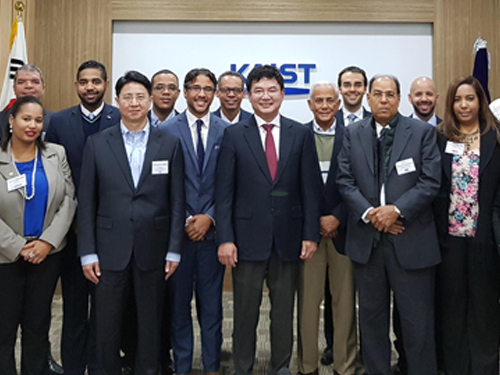 KAIST and KOICA Invited Dominican Republic Officials for Workshop
KAIST will host a two-week workshop for Dominican Republic officials and scholars in collaboration with KOICA (Korea International Cooperation Agency) beginning October 23 at KAIST.
The workshop aims to encourage academia-industry cooperation as one of the Projects for Human Resource Development for Science and Technology at KOICA. Dominican participants including the assistant minister of the Ministry of Higher Education, Science and Technology (MESCYT) and deans of engineering colleges at major universities will enjoy lectures from experts and visit enterprises known for excellent academia-industry collaboration.
According to the Center for Overseas Development, at which Professor WonJoon Kim in the School of Business and Technology Management at KAIST holds the position of director, the workshop is designed to develop human resources in the science and technology (S&T) area, share knowledge on research and development in the field of academia-industry cooperation, and help the participants acquire know-how for managing partnerships between related organizations and industries.
During the workshop, KAIST plans to transfer know-how and share knowledge on its academia-industry cooperation R&D system, in hopes that the workshop will help the Dominican Republic foster its manpower in higher education. The workshop organizers hope that the officers and scholars will be able to apply what they will learn for establishing and carrying out detailed action plans for academia-industry cooperation policies in an effective manner.
“This workshop provides an opportunity to learn about the development of S&T in Korea, academia-industry cooperation R&D, and fostering manpower in advanced S&T. Through the knowledge sharing, we can have a better understanding of academia-industry cooperation as well as education on advanced manpower,” said Pedro Antonio Eduardo, the assistant minister of MESCYT.
He added, “I hope that this workshop will further detailed cooperation between the two countries for Korean high-tech enterprises’ overseas expansion and advanced manpower education. The development model in Korea has many essential elements, so learning its engine for growth and polytechnic manpower education will help develop my country’s industry sector.”
The Project for Human Resource Development for Science and Technology is one of the official development assistance projects running from last year until 2019. It promotes R&D activities for S&T in the Dominican Republic, encouraging academia-industry cooperation by improving trainers in charge of advanced manpower education.
2017.10.30 View 8496
KAIST and KOICA Invited Dominican Republic Officials for Workshop
KAIST will host a two-week workshop for Dominican Republic officials and scholars in collaboration with KOICA (Korea International Cooperation Agency) beginning October 23 at KAIST.
The workshop aims to encourage academia-industry cooperation as one of the Projects for Human Resource Development for Science and Technology at KOICA. Dominican participants including the assistant minister of the Ministry of Higher Education, Science and Technology (MESCYT) and deans of engineering colleges at major universities will enjoy lectures from experts and visit enterprises known for excellent academia-industry collaboration.
According to the Center for Overseas Development, at which Professor WonJoon Kim in the School of Business and Technology Management at KAIST holds the position of director, the workshop is designed to develop human resources in the science and technology (S&T) area, share knowledge on research and development in the field of academia-industry cooperation, and help the participants acquire know-how for managing partnerships between related organizations and industries.
During the workshop, KAIST plans to transfer know-how and share knowledge on its academia-industry cooperation R&D system, in hopes that the workshop will help the Dominican Republic foster its manpower in higher education. The workshop organizers hope that the officers and scholars will be able to apply what they will learn for establishing and carrying out detailed action plans for academia-industry cooperation policies in an effective manner.
“This workshop provides an opportunity to learn about the development of S&T in Korea, academia-industry cooperation R&D, and fostering manpower in advanced S&T. Through the knowledge sharing, we can have a better understanding of academia-industry cooperation as well as education on advanced manpower,” said Pedro Antonio Eduardo, the assistant minister of MESCYT.
He added, “I hope that this workshop will further detailed cooperation between the two countries for Korean high-tech enterprises’ overseas expansion and advanced manpower education. The development model in Korea has many essential elements, so learning its engine for growth and polytechnic manpower education will help develop my country’s industry sector.”
The Project for Human Resource Development for Science and Technology is one of the official development assistance projects running from last year until 2019. It promotes R&D activities for S&T in the Dominican Republic, encouraging academia-industry cooperation by improving trainers in charge of advanced manpower education.
2017.10.30 View 8496 -
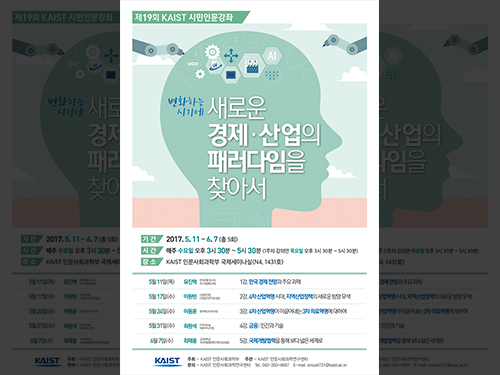 Seeking a New Economic and Industrial Paradigm
The School of Humanities & Social Science will offer the open lecture course titled ‘Seeking a New Economic and Industrial Paradigm’ from May11 to June 7. This is part of a quarterly lecture series run by the school and open to the public.
The open lecture is designed to provide opportunities for the public to identify future challenges and opportunities for Korea’s economy and industry. Experts in macroeconomics, finance, and global collaboration will provide glimpses of new directions for each sector as well as megatrends of emerging technologies on the heels of the 4th Industrial Revolution.
Jin Hyuk Yoo from the Bank of Korea will speak on the ‘Outlook and Challenges of the Korean Economy.’ He will identify the current economic situation and explain how to build on sustainable long-term economic growth in the opening course.
Won-Bin Lee of the Korea Institute for Industrial Economics & Trade will present on the ‘New Industrial Policy in the Era of the Fourth Industrial Revolution.’ His lecture will focus on fostering the local industry and creating its own ecosystem for furthering regional industries.
Dong-Hoon Lee of Donga ST will speak on the implications that the Fourth Industrial Revolution will bring about in the medical industry. Won-Suk Choi of FnPricing will introduce the FN business model, presenting the risks and benefits of fintech in his lecture ‘Finance: Human and Technology.’
Jae-Hong Choi of the Institute of International Development Cooperation at Korea University will give a talk titled ‘Toward the World through Global Cooperation.’ He will present on the history of Korea’s global cooperation initiatives and the role of KOICA, introducing its emerging economic and industrial cooperation model.
Professor Jeounghoon Kim, who is responsible for the public lecture program, said, “Korea now faces very diverse social economic and industrial challenges and we seem to be lost while searching for a solution. The public will have an opportunity to understand the current economic situation and its industrial implications.”
For registration and more info, please visit http://hss.kaist.ac.kr.
2017.04.26 View 8858
Seeking a New Economic and Industrial Paradigm
The School of Humanities & Social Science will offer the open lecture course titled ‘Seeking a New Economic and Industrial Paradigm’ from May11 to June 7. This is part of a quarterly lecture series run by the school and open to the public.
The open lecture is designed to provide opportunities for the public to identify future challenges and opportunities for Korea’s economy and industry. Experts in macroeconomics, finance, and global collaboration will provide glimpses of new directions for each sector as well as megatrends of emerging technologies on the heels of the 4th Industrial Revolution.
Jin Hyuk Yoo from the Bank of Korea will speak on the ‘Outlook and Challenges of the Korean Economy.’ He will identify the current economic situation and explain how to build on sustainable long-term economic growth in the opening course.
Won-Bin Lee of the Korea Institute for Industrial Economics & Trade will present on the ‘New Industrial Policy in the Era of the Fourth Industrial Revolution.’ His lecture will focus on fostering the local industry and creating its own ecosystem for furthering regional industries.
Dong-Hoon Lee of Donga ST will speak on the implications that the Fourth Industrial Revolution will bring about in the medical industry. Won-Suk Choi of FnPricing will introduce the FN business model, presenting the risks and benefits of fintech in his lecture ‘Finance: Human and Technology.’
Jae-Hong Choi of the Institute of International Development Cooperation at Korea University will give a talk titled ‘Toward the World through Global Cooperation.’ He will present on the history of Korea’s global cooperation initiatives and the role of KOICA, introducing its emerging economic and industrial cooperation model.
Professor Jeounghoon Kim, who is responsible for the public lecture program, said, “Korea now faces very diverse social economic and industrial challenges and we seem to be lost while searching for a solution. The public will have an opportunity to understand the current economic situation and its industrial implications.”
For registration and more info, please visit http://hss.kaist.ac.kr.
2017.04.26 View 8858 -
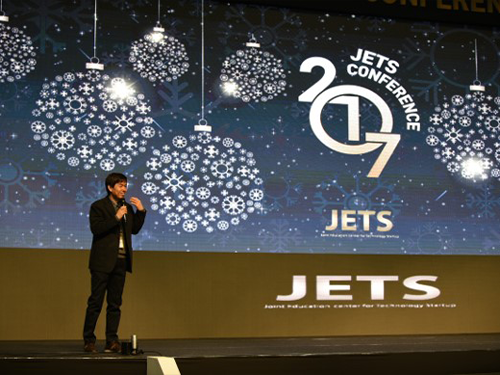 JETS Conference 2017
KAIST and four science and technology research universities in Korea co-hosted a technology start-up fair, the 2017 JETS (Job, Exhibition, Tech Forum, and Startup) Conference January 19 ~20 in the Ryu Geun-chul Sports Complex at KAIST.
Korea’s major science and technology research universities, Daegu Gyeongbuk Institute of Science and Technology (DGIST), Gwangju Institute of Science and Technology (GIST), Pohang University of Science and Technology (Postech), and Ulsan National Institute of Science and Technology (UNIST), held the event in a collaborative effort to educate, inspire, and connect young entrepreneurs, especially those who will launch technology start-ups.
The conference brought entrepreneurs and innovators together who seek ways of working with and supporting start-ups and for their sustainable growth. It also drew aspiring young students and researchers from universities and the government-funded research institutions who are in the process of commercializing their technology. Students from each university’s industry-academia cooperation program who incubated their technology and ideas were key contributors.
At the Tech Forum, entrepreneurship and technology consultation specialists including Joe Jasin, managing director at DNA Investment Partners in the US, the founder of Cyworld Dong-Hyung Lee, and Professor Hawoong Jeong, a complex bio-network specialist from the Department of Physics of KAIST lectured on the ecosystem of start-ups and its trends and development.
The Dean of University-Industry Cooperation at KAIST Joongmyeon Bae said, "We organized this event in collaboration with four major research universities to further encourage technology start-ups from young students and help their ideas and technology bear fruit. We will continue to strive to create an ecosystem of start-ups which works efficiently.”
(Above photo: Founder of the Cyworld, Dong-Hyung Lee gives a lecture at the Tech Forum. Below photo: Students visit exhibition booth of each participating institution.)
2017.01.20 View 12794
JETS Conference 2017
KAIST and four science and technology research universities in Korea co-hosted a technology start-up fair, the 2017 JETS (Job, Exhibition, Tech Forum, and Startup) Conference January 19 ~20 in the Ryu Geun-chul Sports Complex at KAIST.
Korea’s major science and technology research universities, Daegu Gyeongbuk Institute of Science and Technology (DGIST), Gwangju Institute of Science and Technology (GIST), Pohang University of Science and Technology (Postech), and Ulsan National Institute of Science and Technology (UNIST), held the event in a collaborative effort to educate, inspire, and connect young entrepreneurs, especially those who will launch technology start-ups.
The conference brought entrepreneurs and innovators together who seek ways of working with and supporting start-ups and for their sustainable growth. It also drew aspiring young students and researchers from universities and the government-funded research institutions who are in the process of commercializing their technology. Students from each university’s industry-academia cooperation program who incubated their technology and ideas were key contributors.
At the Tech Forum, entrepreneurship and technology consultation specialists including Joe Jasin, managing director at DNA Investment Partners in the US, the founder of Cyworld Dong-Hyung Lee, and Professor Hawoong Jeong, a complex bio-network specialist from the Department of Physics of KAIST lectured on the ecosystem of start-ups and its trends and development.
The Dean of University-Industry Cooperation at KAIST Joongmyeon Bae said, "We organized this event in collaboration with four major research universities to further encourage technology start-ups from young students and help their ideas and technology bear fruit. We will continue to strive to create an ecosystem of start-ups which works efficiently.”
(Above photo: Founder of the Cyworld, Dong-Hyung Lee gives a lecture at the Tech Forum. Below photo: Students visit exhibition booth of each participating institution.)
2017.01.20 View 12794 -
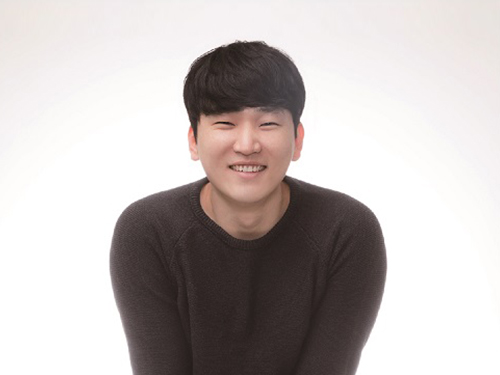 KAIST Ph.D. Candidate Wins the Next Generation of Engineers Award
Joo-Sung Kim, a doctoral student at the EEWS (Environment, Energy, Water and Sustainability) Graduate School won the inaugural Next Generation of Engineers Award in Leadership on December 14, 2016.
The National Academy of Engineering of Korea hosts this award to support creative and ambitious students who have the potential to become leaders in engineering and who will serve as role models for future Korean engineers. Based on the recommendations of university professors in engineering and members of the academy, seven students are selected for the award in the categories of leadership and entrepreneurship.
With his research focus on the development of high-performance, next-generation secondary cells for wearable devices such as smart watches, health bands, and smart eyewear, Joo-Sung created a startup, Lithium-ion Battery Energy Science and Technology (LiBEST), Inc. He plans to base his company at the Office of University and Industry Cooperation, KAIST, where he can receive assistance for launching the mass-production system for his technology.
His adviser, Professor Jang-Wook Choi of the EEWS Graduate School, noted, “Joo-Sung has been a great student who has a strong sense of curiosity and perseverance. The award is the by-product of his hard work.”
“I have always enjoyed my work and study as a researcher, but eventually would like to expand my career into business based on the results of my research. It would be wonderful if I could become a businessman like Elon Musk, Masayoshi Son, or Ma Yun and create a role model for aspiring engineers in Korea by combining science and technology with business demand to create social values that benefit many people,” Joo-Young said.
2016.12.26 View 11259
KAIST Ph.D. Candidate Wins the Next Generation of Engineers Award
Joo-Sung Kim, a doctoral student at the EEWS (Environment, Energy, Water and Sustainability) Graduate School won the inaugural Next Generation of Engineers Award in Leadership on December 14, 2016.
The National Academy of Engineering of Korea hosts this award to support creative and ambitious students who have the potential to become leaders in engineering and who will serve as role models for future Korean engineers. Based on the recommendations of university professors in engineering and members of the academy, seven students are selected for the award in the categories of leadership and entrepreneurship.
With his research focus on the development of high-performance, next-generation secondary cells for wearable devices such as smart watches, health bands, and smart eyewear, Joo-Sung created a startup, Lithium-ion Battery Energy Science and Technology (LiBEST), Inc. He plans to base his company at the Office of University and Industry Cooperation, KAIST, where he can receive assistance for launching the mass-production system for his technology.
His adviser, Professor Jang-Wook Choi of the EEWS Graduate School, noted, “Joo-Sung has been a great student who has a strong sense of curiosity and perseverance. The award is the by-product of his hard work.”
“I have always enjoyed my work and study as a researcher, but eventually would like to expand my career into business based on the results of my research. It would be wonderful if I could become a businessman like Elon Musk, Masayoshi Son, or Ma Yun and create a role model for aspiring engineers in Korea by combining science and technology with business demand to create social values that benefit many people,” Joo-Young said.
2016.12.26 View 11259